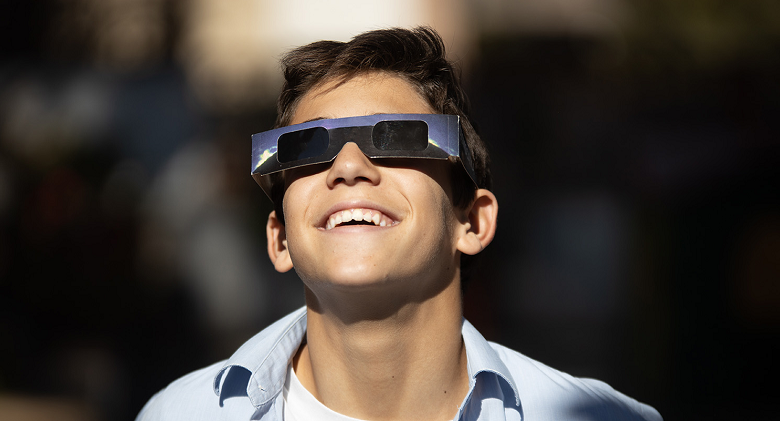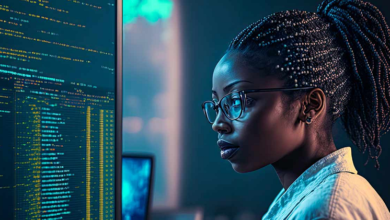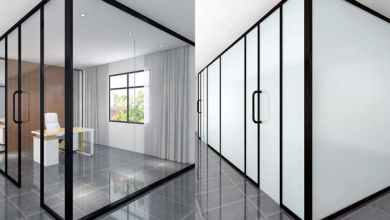Learn How to Make Eclipse Glasses at Home for Safe Solar Viewing

A solar eclipse is a mesmerizing astronomical event, but it requires proper safety precautions to view it without damaging your eyes. Eclipse glasses are essential for safely watching the phenomenon, as looking directly at the sun can cause permanent damage to your retina. However, if you don’t have eclipse glasses on hand, you can easily make them yourself at home using a few simple materials.
In this article, we’ll guide you through the process of making eclipse glass, provide important safety tips, and answer frequently asked questions about safe solar viewing.
Why Are Eclipse Glasses Important?
Eclipse glasses are designed to block out harmful solar radiation, including ultraviolet (UV) and infrared (IR) rays, along with visible light that can damage the eyes. Regular sunglasses or improvised materials like smoked glass or CDs do not provide sufficient protection. Eclipse glass ensure that you can safely view the eclipse while protecting your vision.
Materials Needed to Make Eclipse Glasses
To create your own eclipse glasses, you’ll need the following items:
| Material | Description |
|---|---|
| Solar Viewing Film | Specialized filter material certified for ISO 12312-2 for direct solar viewing. |
| Cardstock/Thick Paper | Sturdy material to make the glasses’ frame. |
| Scissors | For cutting the paper and solar film. |
| Glue or Tape | To assemble the glasses securely. |
| Ruler | For measuring and cutting accurately. |
| Marker or Pen | To trace the shape of the glasses on the paper. |
Step-by-Step Guide to Make Eclipse Glasses

Prepare the Materials
Gather all the necessary materials listed above. Ensure the solar viewing film you use is certified and safe for direct solar observation.
Create the Template
- On a piece of cardstock, draw the outline of a pair of glasses.
- Make sure the shape includes two eye openings, a bridge for the nose, and arms for the sides.
- Use a ruler to ensure symmetry and accuracy.
Cut Out the Frame
- Cut out the glasses shape using scissors.
- Cut out the eye openings carefully. These openings will hold the solar film.
Cut the Solar Viewing Film
- Cut the solar viewing film into two small rectangles slightly larger than the eye openings on the frame.
- Handle the film gently to avoid scratches or tears.
Attach the Film to the Frame
- Apply glue or tape around the edges of each eye opening.
- Place the solar film pieces over the openings and press them firmly into place.
- Ensure the film is taut and covers the entire opening without gaps.
Assemble the Glasses
- Attach the arms of the glasses to the main frame using glue or tape.
- Check that the glasses fit comfortably and securely over your face.
Test Your Glasses
Before using your DIY eclipse glasses, inspect them for any damage or light leaks. Look through the glasses at a bright light source (not the sun) to ensure the solar film is intact and effective.
Alternative Methods for Safe Eclipse Viewing
If you are unable to make eclipse glasses, consider these alternative methods for safely watching a solar eclipse:
1. Pinhole Projector
- Create a small hole in a piece of cardboard and allow sunlight to pass through it onto a flat surface, such as a white paper.
- This method projects an image of the eclipse and eliminates direct viewing of the sun.
2. Welding Glasses
- Welding glasses with a shade rating of 14 or higher can be used to view the sun safely.
- Lower ratings are not safe for eclipse viewing.
3. Purchase Certified Eclipse Glasses
- If you’re short on time, purchase eclipse glasses certified for ISO 12312-2 standards from reputable retailers.
Safety Tips for Viewing a Solar Eclipse
- Never Look Directly at the Sun Without Protection
Even during a partial eclipse, the sun’s rays can cause irreversible eye damage. - Inspect Eclipse Glasses Before Use
Ensure there are no scratches, tears, or defects in the solar film. - Supervise Children
Children should always be supervised when using eclipse glasses to ensure proper usage. - Do Not Use Improvised Materials
Avoid using regular sunglasses, smoked glass, CDs, or unverified filters. These do not provide adequate protection.
FAQ: Frequently Asked Questions About Eclipse Glasses
Can I Use Regular Sunglasses to Watch an Eclipse?
No, regular sunglasses are not safe for viewing a solar eclipse. They do not block enough harmful radiation and can still cause eye damage.
What Is Solar Viewing Film?
Solar viewing film is a specialized material designed to block harmful solar radiation, making it safe for direct observation of the sun. Ensure it meets ISO 12312-2 certification standards.
How Long Can I Use DIY Eclipse Glasses?
DIY eclipse glass can be reused as long as the solar film remains undamaged and free from scratches or tears.
Where Can I Buy Solar Viewing Film?
You can purchase solar viewing film from online retailers, astronomy shops, or specialty optical stores.
What Should I Do If I Don’t Have Eclipse Glasses?
If you don’t have eclipse glasses, use a pinhole projector or welding glasses with a shade rating of 14 or higher to view the eclipse safely.
Can Children Use DIY Eclipse Glasses?
Yes, but adult supervision is necessary to ensure the glasses are used correctly and remain in good condition.
Maintaining Your DIY Eclipse Glasses
Proper care of your eclipse glasses ensures they remain effective for future eclipses:
- Store them in a cool, dry place away from direct sunlight.
- Inspect them periodically for any damage or wear.
- Replace the solar film if it becomes scratched or compromised.
The Importance of ISO 12312-2 Certification
Solar viewing materials must meet ISO 12312-2 standards to be considered safe. This certification ensures the material effectively blocks harmful radiation while allowing safe levels of visible light to pass through. Always check for this certification before purchasing or using solar viewing film.
Conclusion
Watching a solar eclipse is an awe-inspiring experience, but it must be done safely to protect your vision. By following this step-by-step guide, you can easily make your own eclipse glasses and enjoy the celestial event without risk. Alternatively, consider other safe methods like a pinhole projector or certified welding glasses.
Prepare in advance for the next solar eclipse and share this guide with others to ensure everyone can safely witness this extraordinary phenomenon.




